Training in the darkness
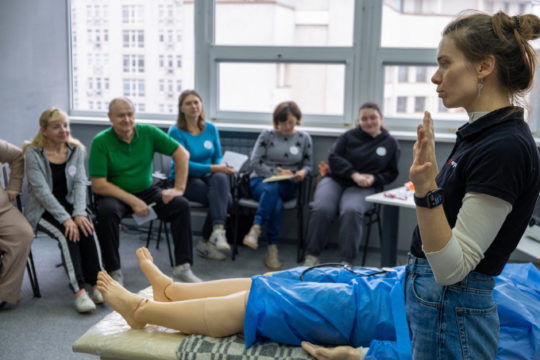
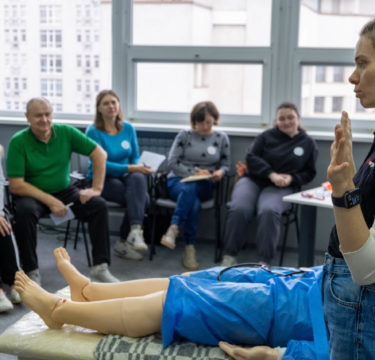
Over four years of war in Ukraine, the profile of patients has completely changed. Patients, due to numerous difficulties, come to the hospital less frequently, and therefore their conditions are much more serious. Unfortunately, civilians are also exposed to wounds that civilian doctors rarely encounter under normal circumstances. The PCPM Foundation helps address this new reality, which is why it trains medics in Ukraine, even when there is no electricity.
For Kyiv residents, however, this is the new normality, and like every morning, they began their routines. Similarly, in one Kyiv hospital, from early morning, an advanced stage of emergency medicine training was underway for doctors, paramedics, and nurses. Participants come from eastern and central Ukraine, including Zmiiv, Kharkiv, Kherson, and Poltava.
This is the final stage of a two-year project by the Polish Center for International Aid, through which several clinics have been renovated and selected hospital staff have been trained in emergency medicine. All the work and training is financed by the Poland Aid program of the Ministry of Foreign Affairs of the Republic of Poland (MSZ RP).
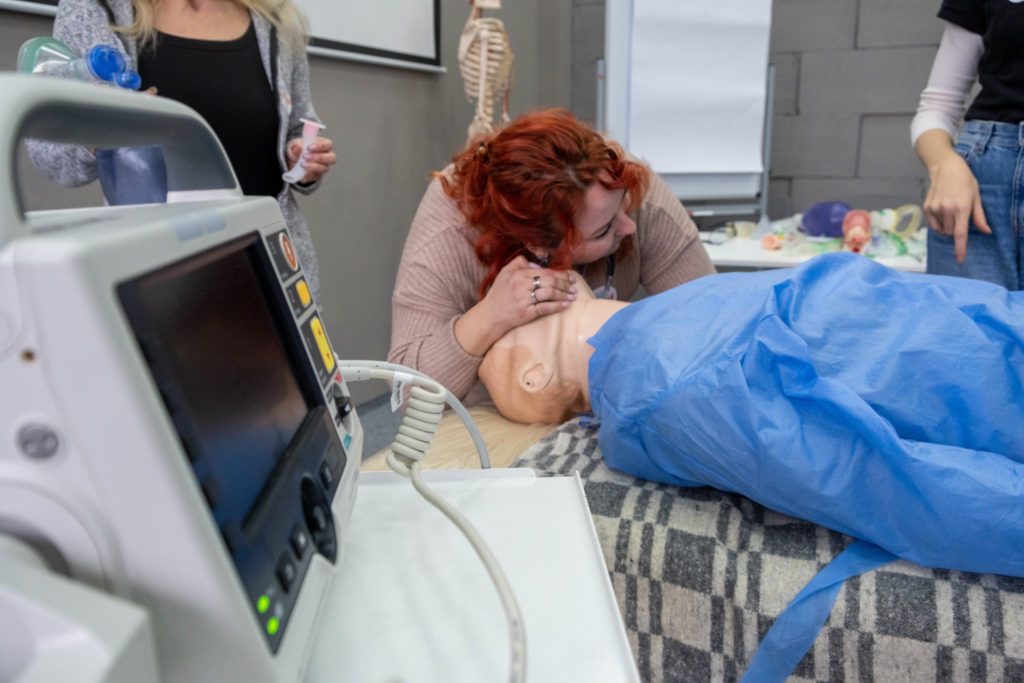
Emergency Medicine
– The war in Ukraine has made emergency medicine training more widely available to Ukrainian personnel who do not usually deal with critically ill patients daily. Under the assistance project of the Polish Center for International Aid, we focus on building competencies in dealing with patients in life-threatening conditions, cardiac arrest, dangerous arrhythmias, controlling massive hemorrhages, as well as managing severe psychological crises and caring for patients with PTSD – says Jakub Kozłowski, instructor from the PCPM Medical Rescue Team.
– Why do you train doctors? Even though this is an advanced course, it seems to cover basic knowledge.
– Every doctor or nurse specializes in their field – cardiology, endocrinology, etc. However, emergency medicine requires a different approach, making critical decisions quickly, often in limited pre-hospital conditions. Airstrikes and drone attacks cause many civilian casualties, including patients with combat injuries, which doctors and nurses across Ukraine encounter, even in places hundreds of kilometers from the front. That’s why we train civilian medics to be ready for the consequences of war in their clinics and hospitals – explains Jakub Kozłowski.
– Some things in the course are new to me, others I am just refreshing – says Konstiantyn Dryhalio, a surgeon from Zmiiv, who normally specializes in stomach diseases.
He adds that after 2022 his work has changed a lot: – More often, we receive patients with advanced diseases, whom it is much harder to help – says the doctor.
– What causes this?
– There are many reasons. We typically deal with people who came from the east and did not continue treatment. Some elderly people find it harder to get to the hospital because young people have emigrated or are fighting on the front lines. And of course, there are wounded with injuries typical of conflicts. As a doctor, I need to be more versatile. That’s why this course is very important to me – Dryhalio concludes.
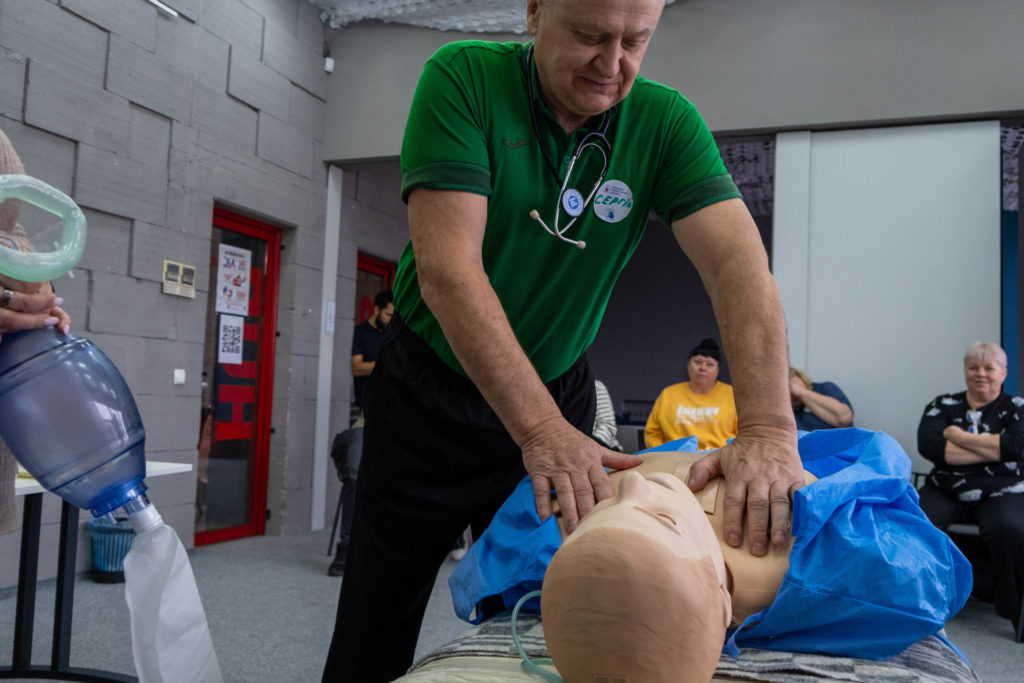
Ukrainian Specificity
– To the emergency medicine training cycle, we added two more modules: infection recognition and recognition of post-traumatic stress symptoms – says Mariia Yurieva from PCPM.
– Unfortunately, where there is war, PTSD (Post-Traumatic Stress Disorder) appears. Not only soldiers but also civilians are exposed to it. Living in stress, in shelled cities, can lead to nervous breakdown. This will be a huge problem in Ukraine, and we know this because every country that has gone through the hell of war had to face it – adds Jakub Kozłowski from EMT PCPM.
Training in Darkness
Kyiv, although far from the front, daily reminds us that normality is only apparent. On the streets, one hears the characteristic noise of thousands of generators running, reminding one that the city lacks electricity. Although many service points operate normally, the streets are dark because the streetlights lack power.
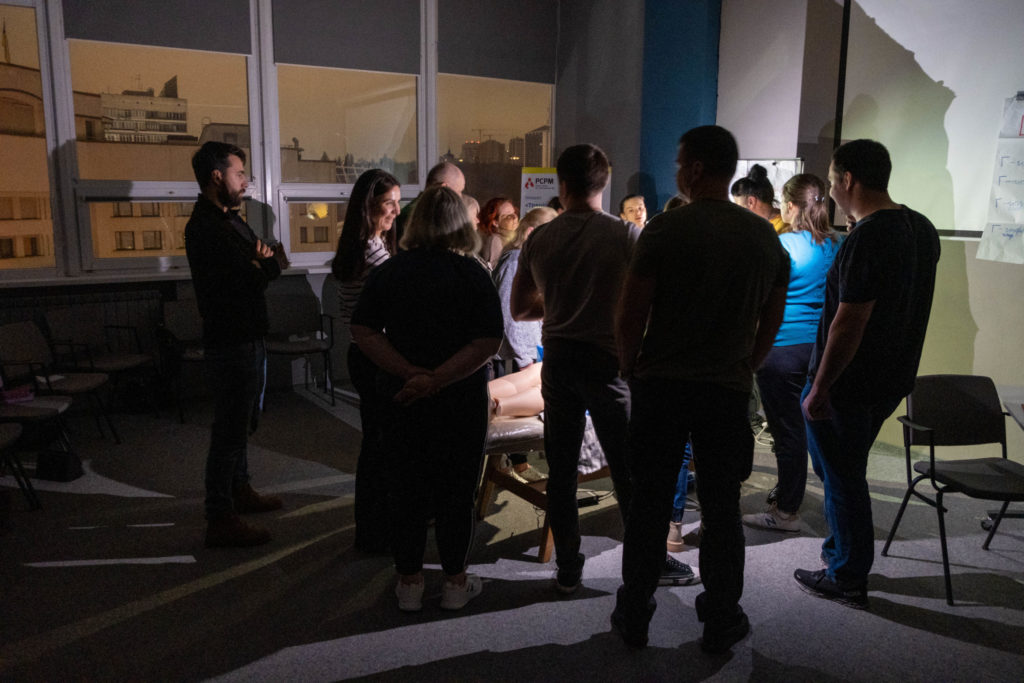
In the evening, during the cardiogram training, the lights suddenly went out as a result of a night shelling that cut power in almost the entire capital. Supplies were limited only to the most necessary sectors. Yet the training participants did not stop working they turned on flashlights on their phones and finished the exercises. For them, this is a new reality that has lasted almost 4 years.
– I think back to patients I had a few months ago. After just this one day of training, I see what I could have done better. For me, this course is a wonderful learning opportunity, and I hope that I can help more effectively, says Tatiana Slaba, who works in a district hospital in Masziwka.
This translation preserves the original Polish terminology in native script where indicated, embedded within brackets as per your instructions. If you need this in any other format or additional assistance, please let me know.